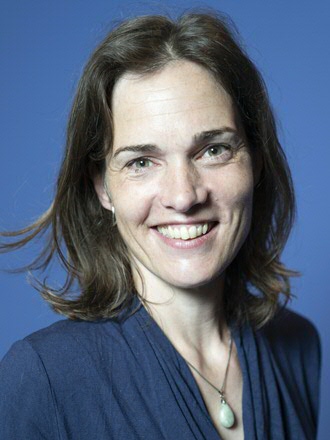Wallenberg Academy Fellows prolongation grant for Jutta Bolt

The Knut and Alice Wallenberg Foundation has decided to award a Wallenberg Academy Fellows prolongation grant to Jutta Bolt. The grant of € 890,000 was awarded for a five-year project aimed at understanding long-term disease patterns in Africa between 1850 and 1960. Bolt is professor Global Economic History at FEB and is associate professor Economic History at Lund University in Sweden.
Bolt’s research focuses on understanding long-term comparative economic development patterns, with a special focus on Africa. Her new research project studying disease patterns in Africa is closely connected to the COVID-pandemic. This pandemic is a forceful reminder of the global importance of good health for all. But at the same time, millions of people around the world – many of whom live in Sub-Saharan Africa – lack access to basic preventative and curative health infrastructures. Yet, several African countries have been praised for their effective campaigns against the spread of COVID-19. As outbreaks of epidemics are not new to Africa, the experience fighting them might have offered some resilience to the current pandemic by putting in place infrastructures allowing a swift response. However, very little is known about how and where past experiences with epidemics have translated into effective government interventions curtailing disease outbreaks in Africa, as a systematic historical analysis of disease processes and interventions for this region is lacking.
Thus, the aim of Bolt’s project is to map historical disease patterns in Africa between 1850-1960, and explore how colonial governments have attempted interventions to curtail disease outbreaks. Outcomes can shed new light on the effectiveness of government-led strategies to promote healthy lives for all, a priority of the United Nations Sustainable Development Goals.
Wallenberg Academy Fellow
Knut and Alice Wallenberg Foundation is the largest private financier of research in Sweden and also one of Europe’s largest. The Foundation supports long-term, free basic research beneficial to Sweden, mainly in medicine, technology, and the natural sciences. This is achieved through long-term grants to excellent researchers. Wallenberg Academy Fellows is a long-term program for young researchers in medicine, natural sciences, engineering and technology, humanities and social sciences. In the end of the first five-year period the Wallenberg Academy Fellows can be nominated for another five years of funding, as was the case for Bolt.
In 2016 Bolt received a Wallenberg Academy Fellowship, a personal research grant of 1.3 million euro’s, allowing her to establish her own research group at Lund University in Sweden. Since then, she has combined a position in Lund and Groningen and has carried out a research project on the mechanisms underlying Africa’s population growth. In this project, she explored a new source of information, namely missionary archives, which often include detailed information on baptisms and deaths, but also information on potential drivers of demographic change such as the size of harvests, droughts, floods and disease outbreaks.
For more information, please contact Jutta Bolt.
| Last modified: | 30 January 2023 11.31 a.m. |
More news
-
01 April 2025
UGBS Executive MBA best-rated MBA | Dutch Master's Guide 2025
According to the independent Keuzegids Masters 2025, the Executive MBA of the University of Groningen Business School is the best rated MBA in the Netherlands (both part-time and full-time programmes).
-
01 April 2025
Executive Master of M&A and Valuation accredited as joint degree with Vrije Universiteit Amsterdam
Starting 1 September, participants enrolled in the programme will receive a master's degree from both the University of Groningen and Vrije Universiteit Amsterdam upon successful completion.
-
05 March 2025
Women in Science
The UG celebrates International Women’s Day with a special photo series: Women in Science.
